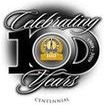Changing quantity
Spatial increase in city area and increase in population has increased the total amount of MSW from 650 tpd (1988) to 1450 tpd (2000). With time there is slight change in composition of waste. The current estimates indicate that between 3000 to 4000 tons of MSW is produced each day in the city – the daily collection is estimated at 3600 tpd. This has increased the per capita generation from 0.16 (1988) to 0.58 kg/d (2009). The rapid increase in the USW generation rate has been due to the rapid changes in lifestyles of the residents brought about by the high demands for software professionals and ancillary and support professions. The rapid increase from 1450 in 2000 to 3600 tpd in 2008-09 itself corroborates the above change and rising generation rate. This has brought about problems by the way of safe processing and disposal of USW around Bangalore. In addition, the city has expanded from about 400 km2 in the 90’s to about 800 km2 of greater Bangalore. This has in the first place brought many of the traditional dumping sites close to the city or within its boundary and therefore a need to find new locations has arisen. The quantum of wastes generated is far greater than the capacity of the three permitted waste treatment and disposal sites, namely, Mavallipura, Bandur and Singehalli. As these locations are quite far-off, many of the trucks illegally dump on new locations on the roadsides and interior areas around Bangalore so as to reduce their transportation costs. The numbers of the shifting dumpsites has thus grown from the original reported 60 (Lakshmikantha, 2006) to much more than this number. There is now a need to determine the new locations where the city wastes are being dumped and assess the economic and environmental harm posed by these short term dumpsites.
|

